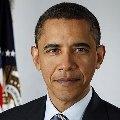On Tuesday, after more than seven years, the United States of America will end its combat mission in Iraq and take an important step forward in responsibly ending the Iraq war.
As a candidate for this office, I pledged I would end this war. As President, that is what I am doing. We have brought home more than 90,000 troops since I took office. We have closed or turned over to Iraq hundreds of bases. In many parts of the country, Iraqis have already taken the lead for security.
In the months ahead, our troops will continue to support and train Iraqi forces, partner with Iraqis in counterterrorism missions, and protect our civilian and military efforts. But the bottom line is this: the war is ending. Like any sovereign, independent nation, Iraq is free to chart its own course. And by the end of next year, all of our troops will be home.
As we mark the end of America's combat mission in Iraq, a grateful nation must pay tribute to all who have served there. Because part of responsibly ending this war is meeting our responsibility to those who have fought it.
The wars in Iraq and Afghanistan now make up America's longest continuous combat engagement. For the better part of a decade, our troops and their families have served tour after tour with honor and heroism, risking and often giving their lives for the defense of our freedom and security. More than one million Americans in uniform have served in Iraq – far more than any conflict since Vietnam. And more than one million who have served in both wars have now finished their service and joined the proud ranks of America's veterans. What this new generation of veterans must know is this: our nation's commitment to all who wear its uniform is a sacred trust that is as old as our republic itself. It is one that, as President, I consider a moral obligation to uphold.
At the same time, these are new wars; with new missions, new methods, and new perils. And what today's veterans have earned – what they have every right to expect – is new care, new opportunity, and a new commitment to their service when they come home. That's why, from the earliest days of my Administration, we've been strengthening that sacred trust with our veterans by making our veterans policy more responsive and ready for this new century. We're building a 21st century VA, modernizing and expanding VA hospitals and health care, and adapting care to better meet the unique needs of female veterans. We're creating a single electronic health record that our troops and veterans can keep for life. We're breaking the claims backlog and reforming the process with new paperless systems. And we are building new wounded warrior facilities through the Department of Defense But for many of our troops and their families, the war doesn't end when they come home. Too many suffer from Traumatic Brain Injury and Post-Traumatic Stress Disorder – the signature injuries of today's wars – and too few receive proper screening or care. We're changing that. We're directing significant resources to treatment, hiring more mental health professionals, and making major investments in awareness, outreach, and suicide prevention. And we're making it easier for a vet with PTSD to get the benefits he or she needs. To make sure our troops, veterans, and their families have full access to the American Dream they've fought to defend, we're working to extend them new opportunity. Michelle and Jill Biden have forged a national commitment to support military families while a loved one is away. We've guaranteed new support to caregivers who put their lives on hold for a loved one's long recovery. We're funding and implementing the Post-9/11 GI Bill, which is already helping some 300,000 veterans and their family members pursue their dream of a college education. And for veterans trying to find work in a very tough economy, we've devoted new resources to job training and placement. I've directed the federal government to hire more veterans, including disabled veterans, and I encourage every business in America to follow suit. This new generation of veterans has proven itself to be a new generation of leaders. They have unmatched training and skills; they're ready to work; and our country is stronger when we tap their extraordinary talents. New care. New opportunity. A new commitment to our veterans.
If you'd like to send our troops and veterans a message of thanks and support, just visit whitehouse.gov. There, you'll find an easy way to upload your own text or video. Let them know that they have the respect and support of a grateful nation. That when their tour ends; when they see our flag; when they touch our soil; they'll always be home in an America that is forever here for them – just as they've been there for us. That is the promise our nation makes to those who serve. And as long as I'm Commander-in-Chief, it's a promise we'll keep. Thank you.

